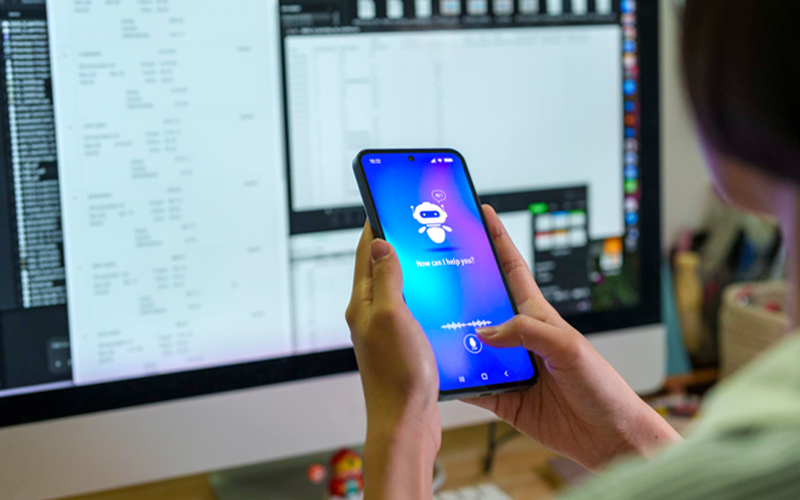Artificial intelligence (AI) and machine learning (ML) are revolutionising the way we create and consume dynamic, personalised, and engaging stories. Rather than narrating the same story for all consumers, generative AI crafts a unique one based on the responses and emotional state.
Generative AI is the author’s assistant that augments human creativity by enhancing the plot, developing characters through data, and applying contextual intelligence to traditional storytelling.
This article explains the impact of generative AI on the future of storytelling, challenges, and ethical and regulatory considerations.
The impact of generative AI on storytelling
Books offer a fixed narrative, and video games modify it based on pre-coded scenarios. However, generative AI-based storytelling transforms how a user interacts with the story.
For example, while listening to a health podcast, you might ask, “Tell me more about the benefits of waking up early.” The generative AI host will take your request and modify the story to include the benefits of waking up early on physical, mental, and emotional health. Once complete, the host will seamlessly return to the main story of the podcast.
Personalised storytelling
Dynamic storytelling depends on the vast amount of data the generative AI model extracts from the internet, machine learning models, and your responses, preferences, and interactions. Imagine listening to the same health podcast once again but with a focus on a 15-minute daily exercise regime and the role of proteins in high-quality skin and hair.
Creative expression
Generative AI will transform existing storytelling and create new forms of art that are currently unknown. By using generative AI in poetry, music, scripts, and short stories, you can open a new realm of creative expression, thus offering a rich and immersive experience to the consumer.
Leveraging text-to-speech technology
Text-to-speech technology drives this transformation. Accurately recreating the voices of renowned personalities and generating new voices adds a new layer of immersion into storytelling. This presents newer opportunities in licensing and compensation for famous personalities and those in music and law.
Disrupting traditional narratives
Generative AI understands language and storytelling standards and refers to a vast library of literature to connect words and weave them into a compelling story that breaks away from traditional structures. It imitates nuances such as writing styles, tones, and genres. It boosts engagement, thus making it an excellent tool for education, marketing, and other content-driven applications.
Challenges of integrating generative AI into storytelling
High Quality
AI-driven storytelling has far-reaching implications for business owners and technology providers. Both parties must understand and deal with the challenges of data quality, impact on existing roles, upskilling needed, and human relatability.
Ensuring high quality is the biggest challenge for generative AI storytelling. It must match the emotion, depth, empathy, intuition, and creativity of a human and must be relatable to the consumer. Generative AI storytelling must resonate with the experiences and emotions of the reader.
Ethical and regulatory considerations
- Generative AI storytelling requires tighter regulations around copyright and intellectual property rights. To avoid disputes, the parties must know the content’s ownership and royalty beneficiaries.
- Additionally, the technology provider must ensure that the training data is free of any unwanted bias. Biases within the training data can raise ethical concerns, including stereotypes and cultural insensitivity. If not trained with the correct data, generative AI can make contextual mistakes. It can misinterpret cultural differences and sensitive narratives, especially in long-form content. While crafting scripts for intricate plots, generative AI must stick to the context in which the storyteller wants to narrate the story.
- Generative AI-created content must present diverse perspectives as humans do. However, existing biases within the training data can propagate them into the final product. The training data must be diverse and inclusive to present different experiences and perspectives. One can solve this problem by bringing together experts from diverse fields such as science, psychology, cultural sciences, literature, and art from diverse cultural, linguistic, and socioeconomic backgrounds.
- Interactive and immersive storytelling also processes personal data to understand what the consumer wants, raising the need for data privacy and identity protection. Regulatory bodies must update the frameworks that govern generative AI regularly to protect privacy rights and maintain ethical standards.
How can Infosys BPM help in AI storytelling?
Generative AI is now essential for gaining a competitive edge in business and offers numerous benefits. The Infosys Generative AI platform provides custom, ready-to-use solutions and responsible design frameworks to help transform your business processes, implement AI-driven operations, and uphold AI ethics, all while accelerating technological innovation.








